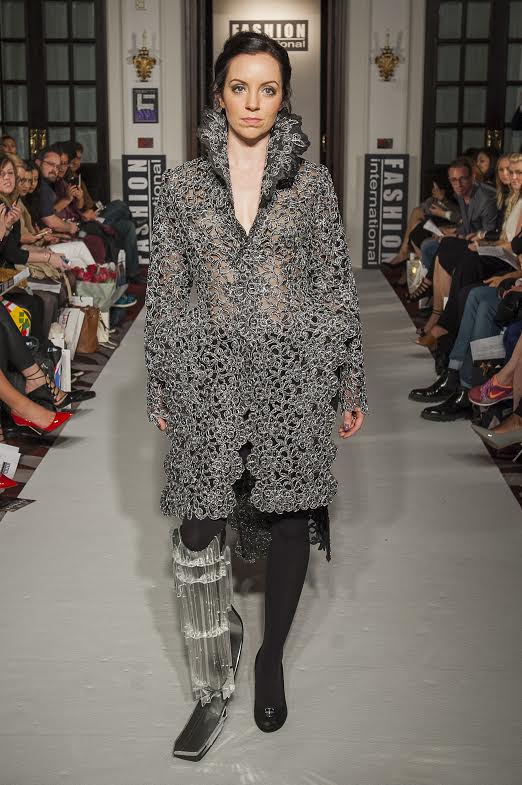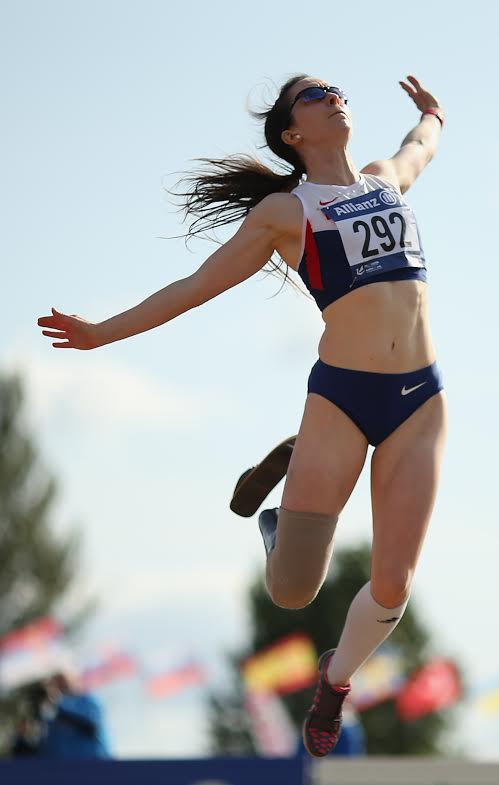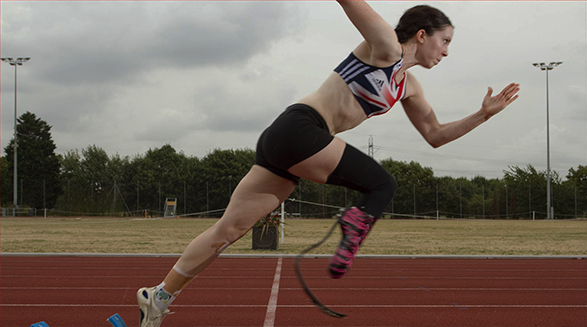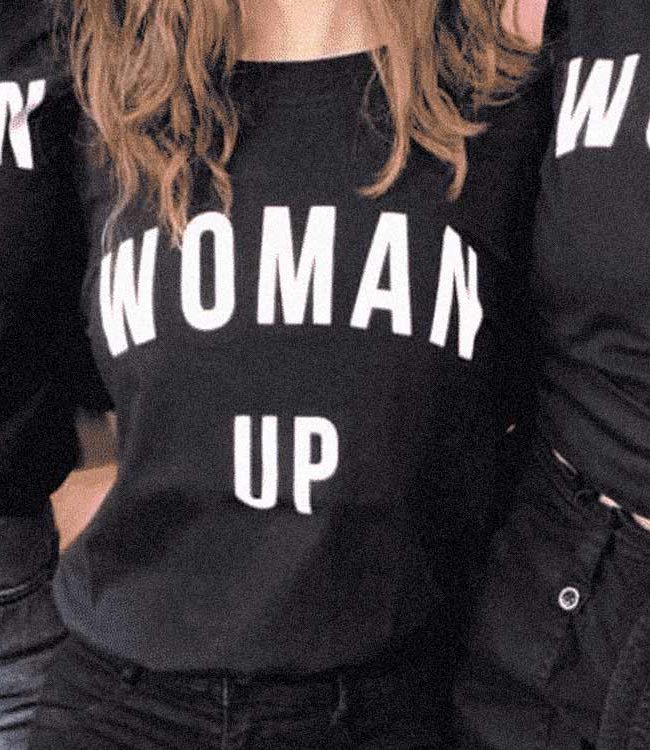We talked catwalks, Rio 2016 and artificial limbs with Paralympian Stefanie Reid
Stefanie Reid is a Paralympic long jumper who competes for Great Britain; she is a five-time world record holder, double Paralympic medallist in the long jump (2012) and 200m sprint (2008), and reigning European long jump champion. She has an honours degree in biochemistry, and away from the track works as a professional speaker and fashion model.
Her talent and passion for sport were spotted early, and at 12 she was already dreaming of playing rugby on the world stage. But at 15, Stef was involved in a boating accident, suffering severe propeller lacerations. Her life was saved but her right foot was amputated. Stef’s focus shifted from her sports to her studies, and she graduated as valedictorian earning a full academic scholarship to Queen’s University in Canada to study biochemistry.
While at Queen’s, Stef joined the university athletics team just to see how fast she could still run. Upon graduation, Stefanie decided to put her plans of medical school aside and focus on her childhood dream of being a professional athlete. Stefanie trains at Loughborough University alongside her wheelchair racing husband, Brent Lakatos. Brent is also world record holder, three-time Paralympic medallist, and three-time world champion. Together the dynamic duo are working hard towards Rio 2016.
DTL: We see that you have a very impressive schedule filled with athletics, modelling and professional speaking… What is your favourite thing to do when you have some time off?
Stefanie: My favourite things to do tend to be sport related – I am just not allowed to do them in season because I cannot risk injuring myself. But I have 6 weeks a year when I can do things like rock climb, yoga, hike, surf, play basketball. On the list this year is stand up paddling! In season, I love to read, and I am currently addicted to Moth Radio Hour!
DTL: The photos of your 2015 London Fashion Week debut are fantastic, how did it feel to switch from the sandpit to the runway?
Stefanie: It was a little bit nerve wracking, but I had been injured for a while, and I missed the adrenaline rush of competing, so it was great to have an exciting new challenge. The show was really fun, but no one sees the intense work before hand…or the hours before the show sitting around in dresses that you are half sewn into.

DTL: What is the most exciting thing you’re working on at the moment?
Stefanie: My bid for Paralympic gold in Rio!
DTL: Your childhood dream was to become a professional athlete – what inspired you to continue with that goal following your accident?
Stefanie: Losing a limb doesn’t change who you are; I still loved a challenge, I still loved sport, I still loved pushing my body to see what it could do. When I first started, no one really knew what the Paralympics were, or took Para-sport seriously. I was on a very set path when I started athletics: I finished my degree in biochemistry, I was applying to go to medical school. Chasing a dream of being a professional athlete with one foot seemed a little crazy, but to be honest, that was the attraction!
DTL: Do you think that the media has a negative impact on young people in terms of body image and self-confidence?
Stefanie: The problem with media is that it portrays a very limited reality, a very sanitised way to live. It is not real, it lacks depth, and it too often encourages young people to set their goals too low. A recent study showed that when young people were asked what they wanted to be when they grow up, their number one answer was to be famous. When asked, “Famous for what”, they responded with “Just famous”. What happened to wanting to change the world?
But while I think the media has had a negative impact, we are ultimately responsible for our thoughts and our actions. It is up to us to use our brains to assess and evaluate what the media is portraying.
DTL: What do you think has been your recipe for success?
Stefanie: It is important to have an open mind, and to be receptive to new ideas. It is important to have a great education – sometimes this happens best outside the context of a classroom! I have an incredible mentor. It is important to be prepared to work hard, for a very long time and it is important to accept failure as part of the learning process.
DTL: What are your most prominent challenges, and how do you overcome them?
Stefanie: Self doubt. In my sport, 4 years of hard work comes down to one performance, on one day. Everyone I am competing against is a great athlete. What sets the winner apart is belief and a deep inner confidence. Life and training never work out perfectly – there are no guarantees in life or in sport, and you have to believe that deep down, no matter what happens, you can deal with it and rise to the challenge.

DTL: Our research found 63% of those with a physical disability are likely to experience extreme bullying and social exclusion. What advice would you give to any of our readers who may be experiencing bullying or feel like they don’t fit in or doubt themselves because of attitudes towards a disability?
Stefanie: I was 15 when I first became an amputee, and one of my first thoughts was “who would ever want to date a girl missing a limb”. I knew that I no longer fitted into the ideal of what ‘cute’ or ‘pretty’ was. It was hard at first, but actually, it was really liberating. I was free from trying to pretend to fit into some false standard. I accepted who I was, I accepted I didn’t fit the mould, and just carried on. The weird thing was, people found it attractive – I actually got asked out a lot. The truth is, everyone is insecure. It is the reason bullying exists. The best thing to do is find something that makes you feel good about yourself – painting, writing, sports, music. Focus your mind and your energy on your goals – you can’t always stop bullying, but you can try and stop it taking over your headspace.
DTL: Have you ever experienced bullying? If so how did you deal with the experience?
Stefanie: Fortunately, I have not. I have always had an incredibly supportive network. It is however, impossible for me to walk anywhere and not have people stare, but I really like my artificial leg – it looks awesome. I would stare too!
Follow Stefanie on Twitter:
@RunJumpStefReid













